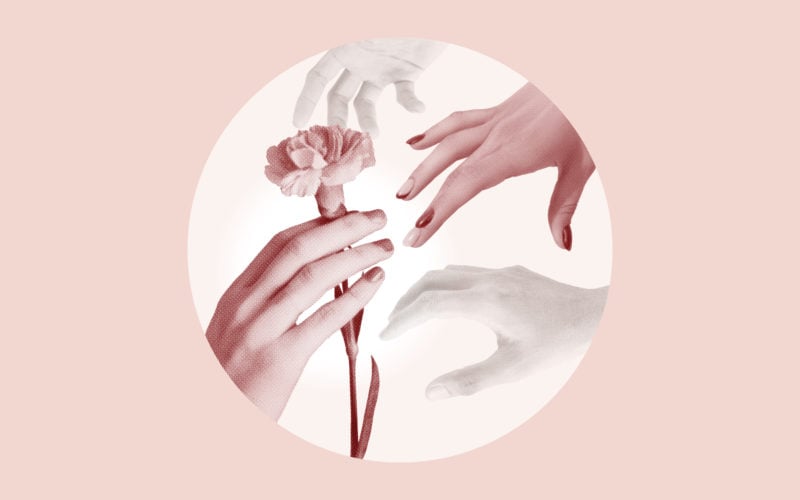
Design by Kayleen Dicuangco
Here’s why the notion that all queer people are born this way doesn’t advance equality.
By Heidi Ruggier
Date June 29, 2023
When you tell people you’re queer, they assume you were “born this way.” I wasn’t. These reductive generalizations have often made me feel othered — by both gay and straight people — over the years. I understand this is true for many people, but for me, it’s not. Sorry Lady Gaga, but your oversimplification puts sexuality into a rigid binary and ignores that sexual orientation can change throughout a person’s life.
RELATED: What Do We Get Wrong About Gender-Fluid Fashion?
My story goes like this: I fell in love with a woman after years of happily dating men. This year, my partner and I are celebrating a decade of love, and I am so grateful we are together. I couldn’t picture my life without her.
“You have been gay this whole time!” is the face I was often met with when I revealed my own sexuality to people for the first time. You see, for me, it’s not that I was gay my entire life and then finally came out. When I fell in love with my partner of 10 years, it all happened right under my nose. She likes to joke that we had been dating for months, but I was unaware of it. I don’t think she’s wrong.
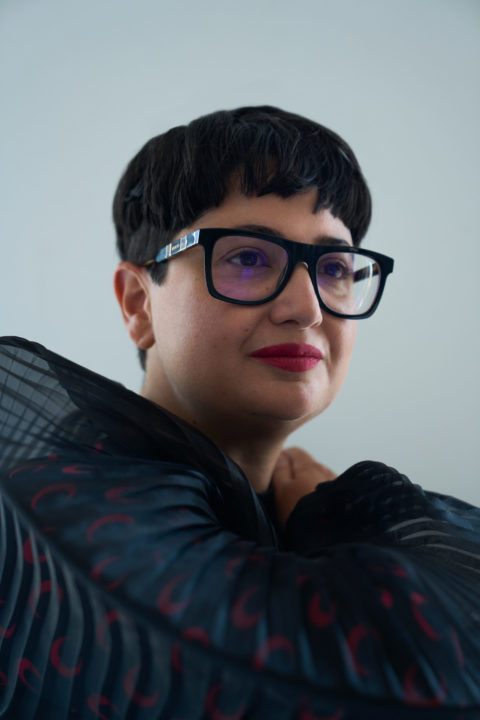 The author wearing Sid Neigum and Marine Serre. Photography by May Truong and Armand Digdoyo.
The author wearing Sid Neigum and Marine Serre. Photography by May Truong and Armand Digdoyo.
When it finally hit me that I was in love, it was important for me to tell my close friends and parents immediately. There’s a cultural history of coming out being this grand moment — it’s become somewhat of a queer narrative device. For me, it was straightforward. I am dating this new person, and she’s a woman. Basta.
When I told my mum that I was dating a woman, she looked at me with a smile and said, “And now you won’t have to take heck from any man again.” I love her for that moment. In 2018, my mum made it a point to attend the Pride parade with me and my partner to show her support. Video footage of us in the crowd at the parade ended up as part of CP24’s Pride segment, and it played on repeat all day that Sunday. What you have to understand is that my mom is a school teacher with the York Catholic District School Board — the board that recently voted against flying the Pride flag at all schools this Pride month. The next day, when my mom returned to school, two young teachers approached her and said, “We saw you on TV!” and gave her a huge hug. Thinking about that moment still makes me tear up. She continues to fight for queer rights inside her school board, and I am so proud of her.
While sharing my new relationship was quite painless with my friends and family, I felt uncomfortable revealing my queer identity to my fashion industry peers and colleagues, and the feeling was confusing.
In my experience, the fashion industry has been a genuinely welcoming and liberating space where people are encouraged to be their true selves. But as I began embracing the complexities of my identity as a queer woman, I encountered a predominantly heteronormative landscape where the visibility of queer women was limited (read: basically non-existent).
It can be isolating when you feel like you’re the only one in the room. The absence of representation meant navigating spaces where my experiences were often overlooked or misunderstood. I remember continuously being asked in professional situations if I had a boyfriend, and having to explain.
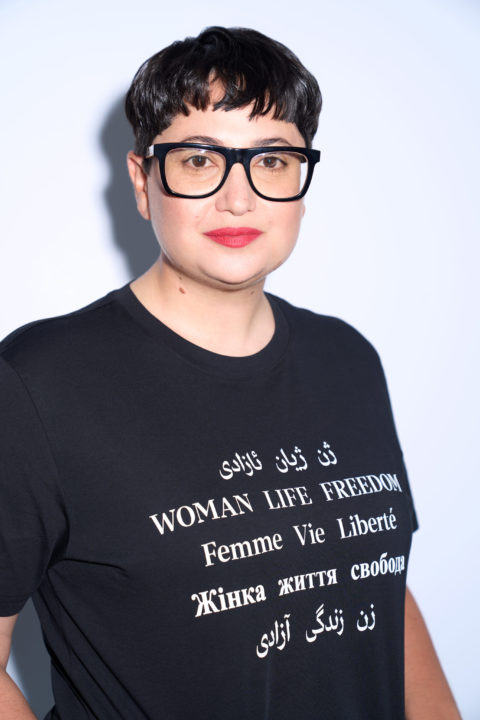 The author wearing a @postitforwardwlf T-shirt in support of the Woman Life Freedom movement. Photography by May Truong and Armand Digdoyo.
The author wearing a @postitforwardwlf T-shirt in support of the Woman Life Freedom movement. Photography by May Truong and Armand Digdoyo.
That’s why when people like Cara Delevingne and Jenna Lyons started sharing their stories, it was a significant win for queer female representation in fashion. Jenna Lyons, for example, has a similar story to me. She came out later in life after falling in love with a woman. Unfortunately for her, she was outed by the New York Post before she could tell her family and friends on her own terms.
The feelings of joy I experience every time I learn about a new queer woman in the fashion industry has also made me realize that I, too, have the responsibility to tell my story.
I founded Matte PR, a PR agency representing some of Canada’s top fashion brands and organizations, like Ahiri, Hania Kuzbari Jewelry, INLAND and Toronto Fashion Incubator, in 2016. In the early days of the agency, I was having to come out to colleagues, clients, and collaborators on a weekly basis. It was tiring.
Over time, I made a conscious effort to be more “out” in the workplace — even making it a point to note that Matte PR was queer-owned directly in our company bio. It was liberating not to have to come out to people all the time. Everyone deserves equality, whether they are gay, straight, bi, trans or many of those things at different times. It doesn’t matter if they figured it out years ago, months ago, or while reading this.
Sexuality is a complex spectrum that isn’t easily classified, and it is a fluid and evolving thing for many people. The cultural notion that “I couldn’t change this if I wanted to” is missing a lot of nuance, and it excludes those of us who don’t completely relate. It panders to the idea that being gay is wrong, but because it can’t be helped, must be accepted.
I’m grateful that my experience so far has been mostly positive. The people who have been a part of my story have embraced my identity, but I hope it’s not because they assume I was “born this way.”
Photography by @maytruong_photography and @d.gdoyo. Creative direction and production by @feelngoodstudio. Hair and makeup by @hairbykristjan. Haircut by @triciamcq for @sassoontoronto. Shot on location at @victorysocialclub.








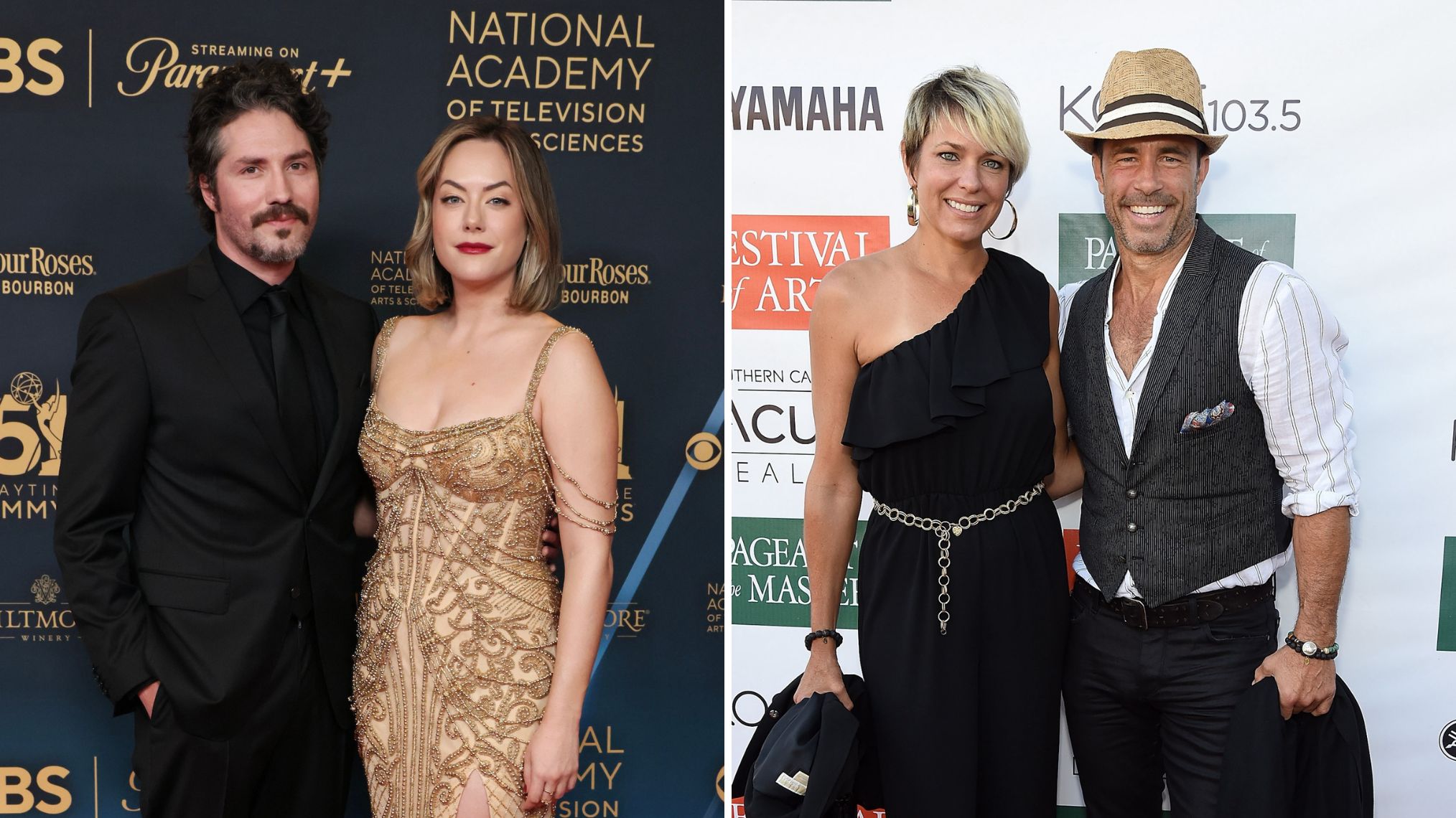
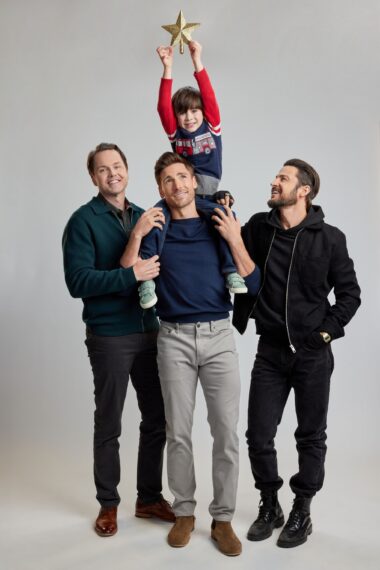




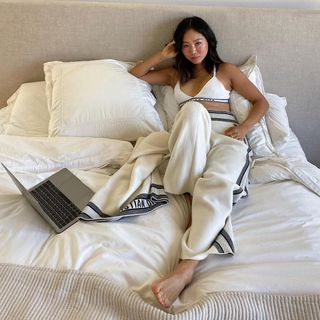
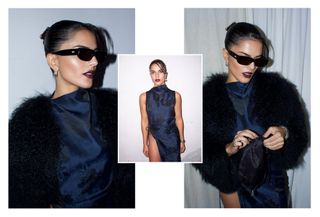
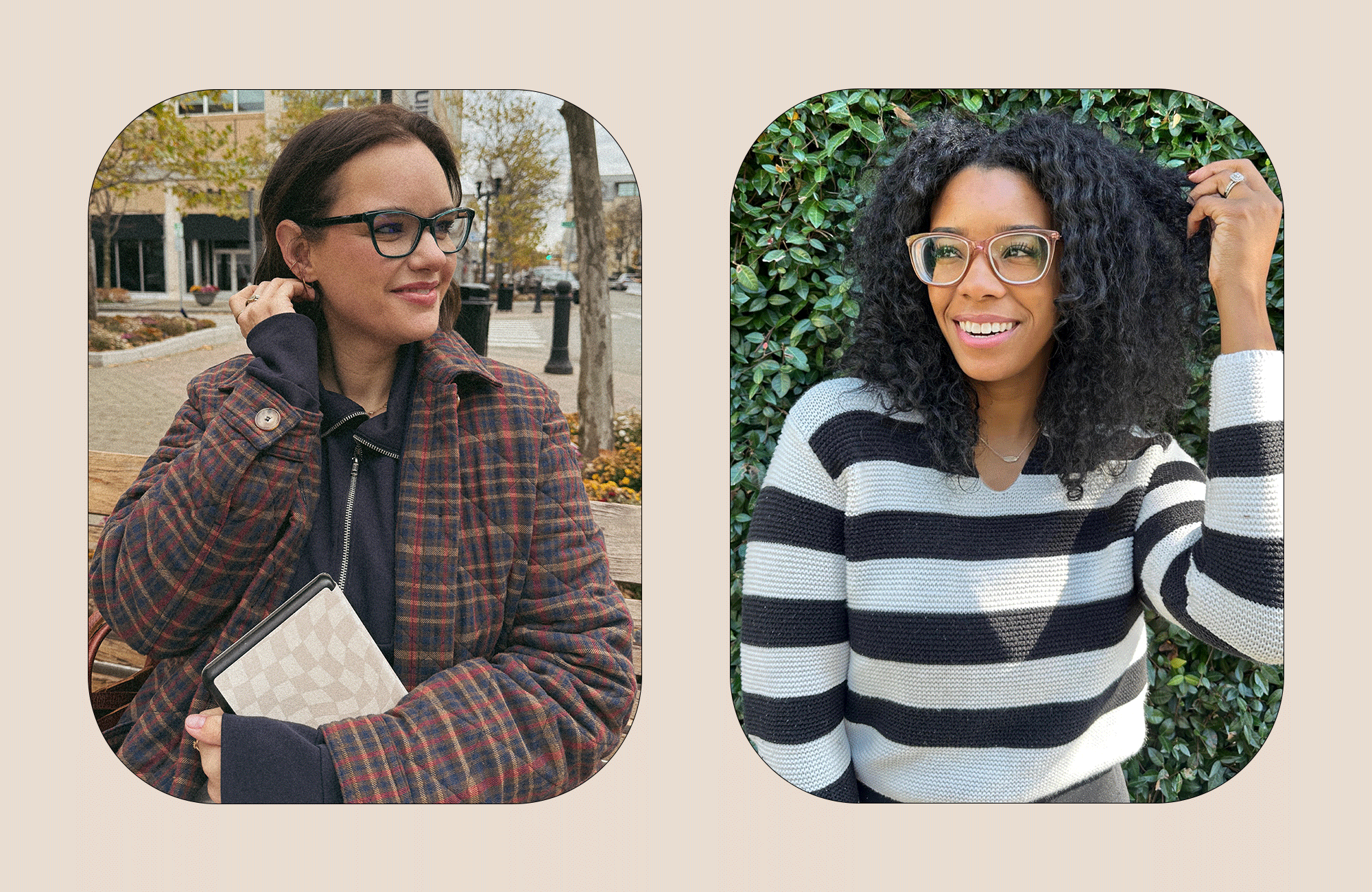
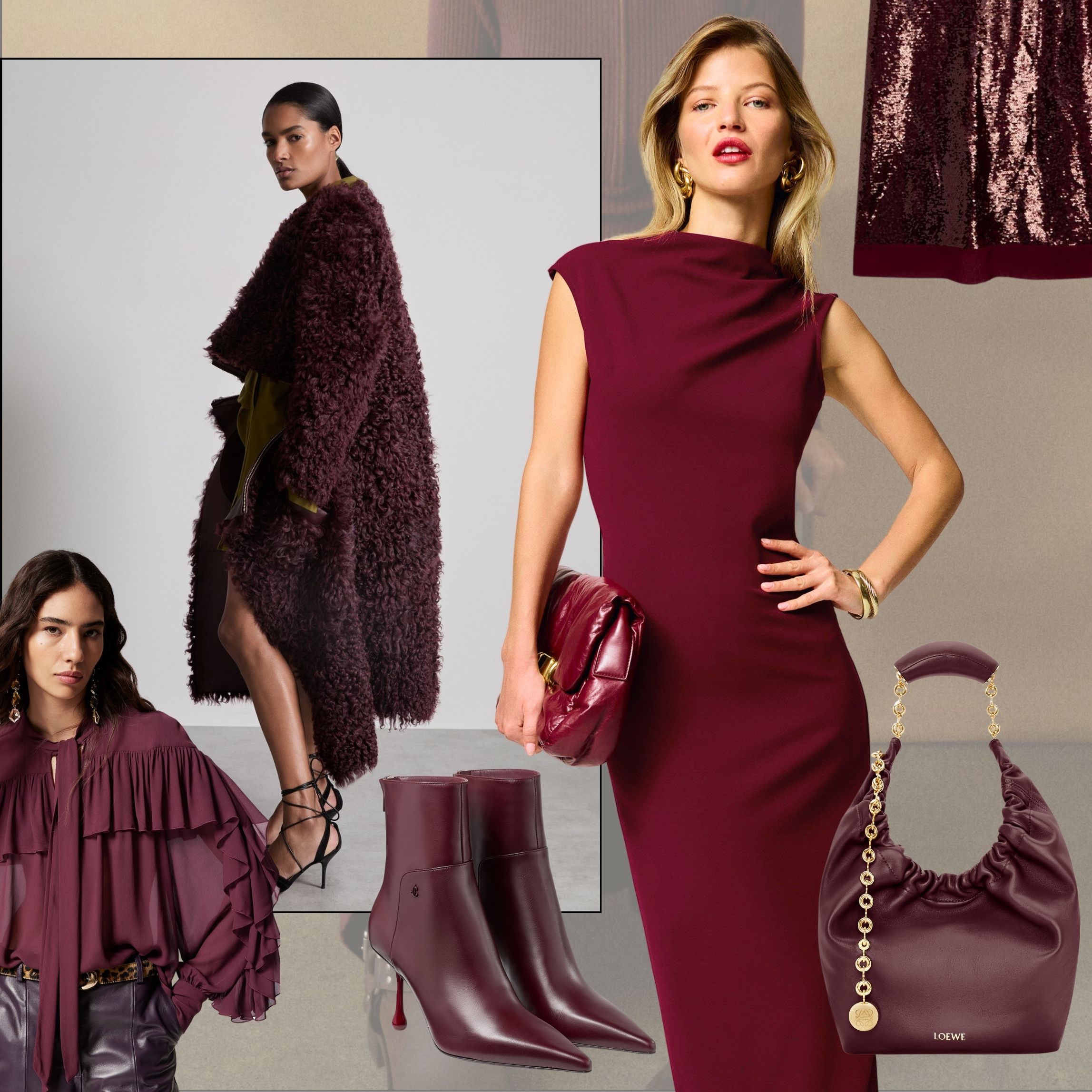




![Moneybagg Yo – PLAY DA FOOL [Official Music Video] Moneybagg Yo – PLAY DA FOOL [Official Music Video]](https://i.ytimg.com/vi/q5y5HHUwfBs/maxresdefault.jpg)
![Cardi B – Like What (Freestyle) [Official Music Video] Cardi B – Like What (Freestyle) [Official Music Video]](https://i.ytimg.com/vi/GcNC7YnlhKc/maxresdefault.jpg)
![Quando Rondo – Grow Up [Official Music Video] Quando Rondo – Grow Up [Official Music Video]](https://i.ytimg.com/vi/8zFnCg3BO4Q/maxresdefault.jpg)